SUMMARY
This is AI generated summarization, which may have errors. For context, always refer to the full article.
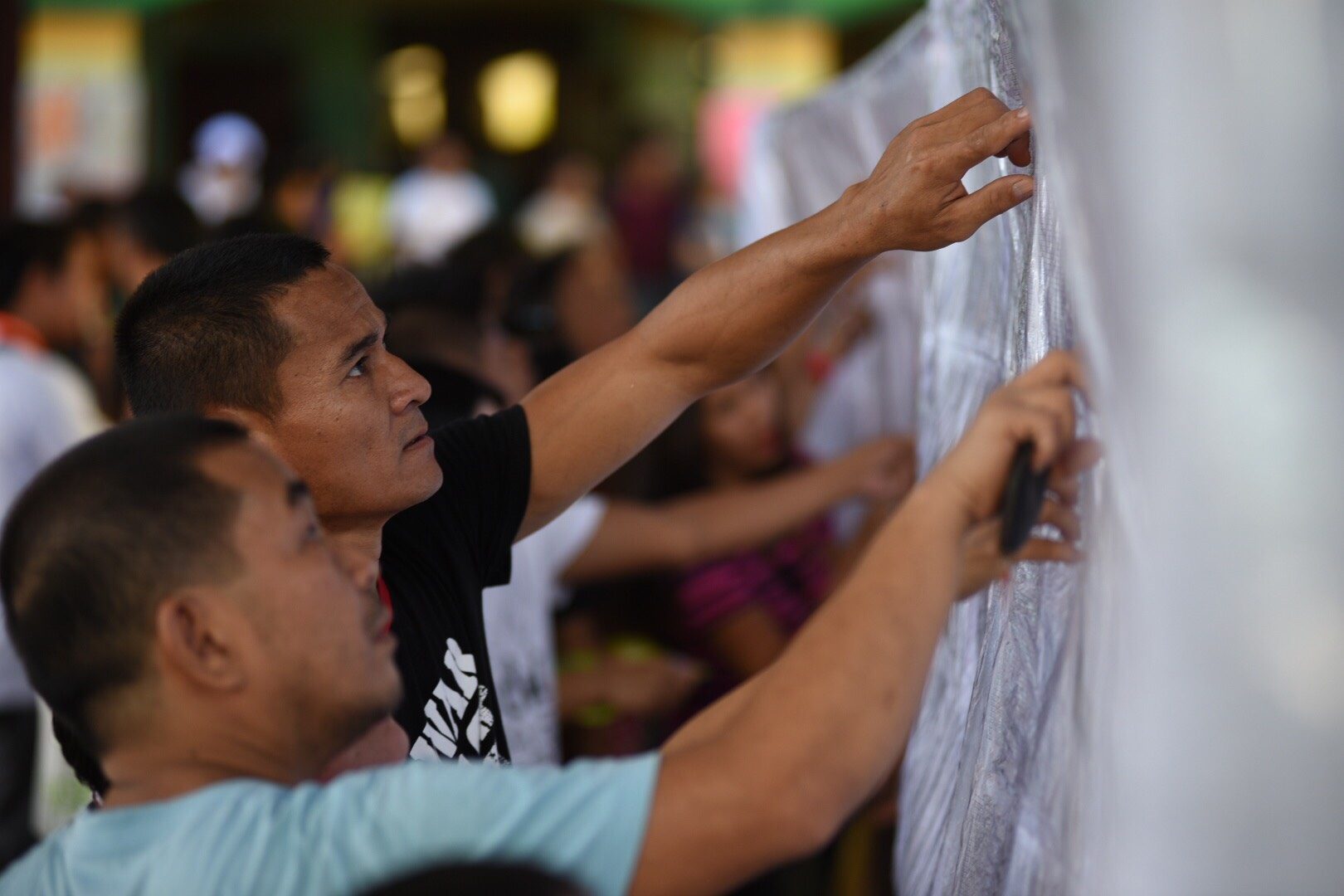
MANILA, Philippines – We’re familiar with the expression: “Isang taon pa lang?” (It’s only been a year?) We – the nation, not just the media – have been on a daily roller-coaster ride since the mayor from Davao became president.
Everytime President Rodrigo Duterte says something controversial – during unholy hours, ‘mind you. Everytime officials of his administration, either elected and appointed, try to outdo themselves in the why-are-you-even-in-government department. It seems like forever.
Everytime the President or his Cabinet tackles a problem or starts a project that several administrations have made to appear too complicated to attend to. Everytime Duterte instantly shows up in the sites of tragedy or calamity, or runs to the side of wounded men in uniform and their families, thus making the once-viral hashtag #NasaanAngPangulo unnecessary. It feels like an era ago.
But it’s been just a year, really. On this day in 2016, May 9, most Filipino voters cast their votes for Rodrigo Duterte of Davao City to become the new president, and Leni Robredo of Naga City as the new vice president.
I revisited Rappler’s #PHvote 2016 microsite for this first anniversary of the exercise, and its wealth of stories, as in the election before that, did not disappoint. Here’s a summary of the major events of that whirlwind of a day.
Polls open – in some cases, late in the day
The 92,509 clustered precincts nationwide opened at 6 am on the second Monday of May in 2016. In areas where the opening of the polls was delayed until 9 am, the Commission on Elections extended voting hours to 6 pm, an hour later than originally scheduled. Voting was delayed in some precincts after vote-counting machines turned out to be defective and had to be replaced by the Comelec.
Of the more than 54 million registered voters, at least 81% cast their votes, with 100 precincts reporting that all their listed voters turned up. Among the 1.38 million overseas voters, more than 200,000 voted – the highest in a decade. At least 44,000 national and local candidates vied for national and local posts.
Presidential candidates vote: Binay is first in line
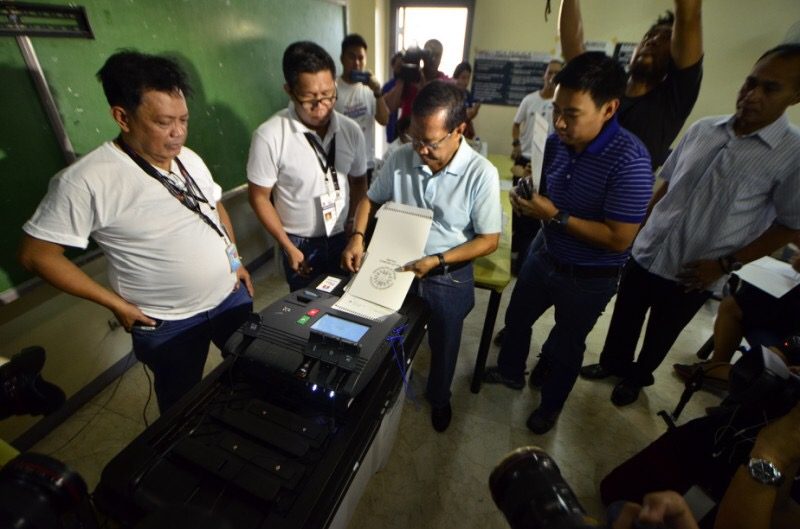
Jejomar Binay, known as an early riser, was also the first to vote among presidential candidates. He cast his vote at the San Antonio National High School in Makati, where he had lined up even before the precincts opened at 6 am. He was with his son, former Makati Mayor Jejomar Jr. He later accompanied his daughter, son-in-law, and wife when they went to their precincts in the same school. He later told reporters that he had drafted his victory speech because it was obvious, he said, that he would be the winner.

Miriam Defensor Santiago voted at the club house of her La Vista subdivision in Quezon City before 7 am.

Manuel Roxas II flew to Roxas City in Capiz Sunday. He was at his precinct at 8:30 am the following day, with his wife Korina Sanchez, his mother Judy Araneta Roxas, and his son Paolo. “The hard work begins after today,” the candidate told reporters after, confident he would win.
Grace Poe voted in San Juan, Metro Manila, at around 9 am. Her husband Neil Llamanzares and son Brian voted ahead of her.
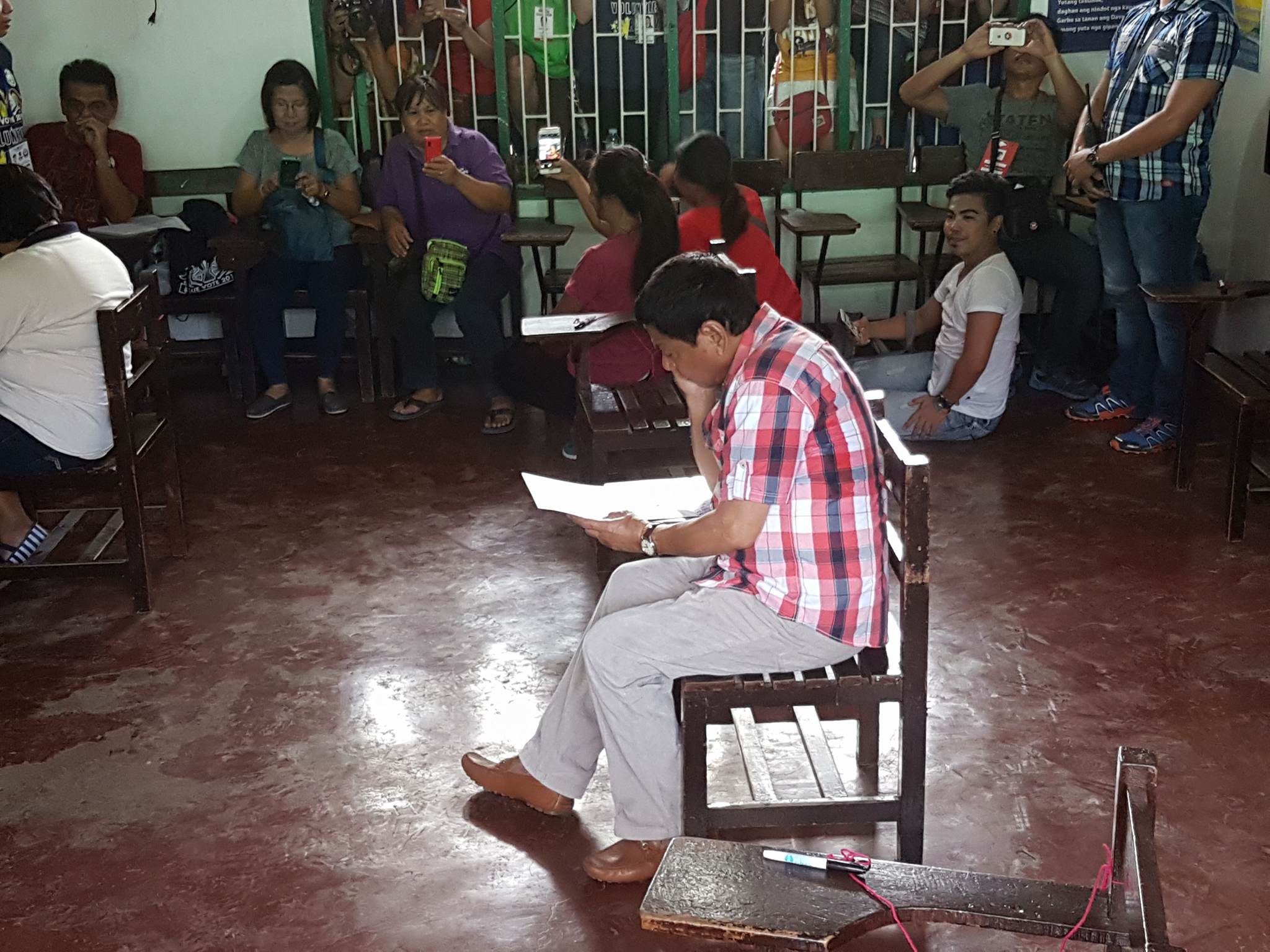
Rodrigo Duterte, known to start his day late, announced he would go to his precinct in the afternoon yet. His daugther Inday Sara Duterte Carpio was the first in the family to cast her vote at the Daniel R. Aguinaldo National High School in the morning. She told reporters she could only wish her father good luck. Duterte the father finally cast his vote past 2 pm, with his longtime partner Honeylet Avanceña,
Machine glitches – even in Robredo’s precinct
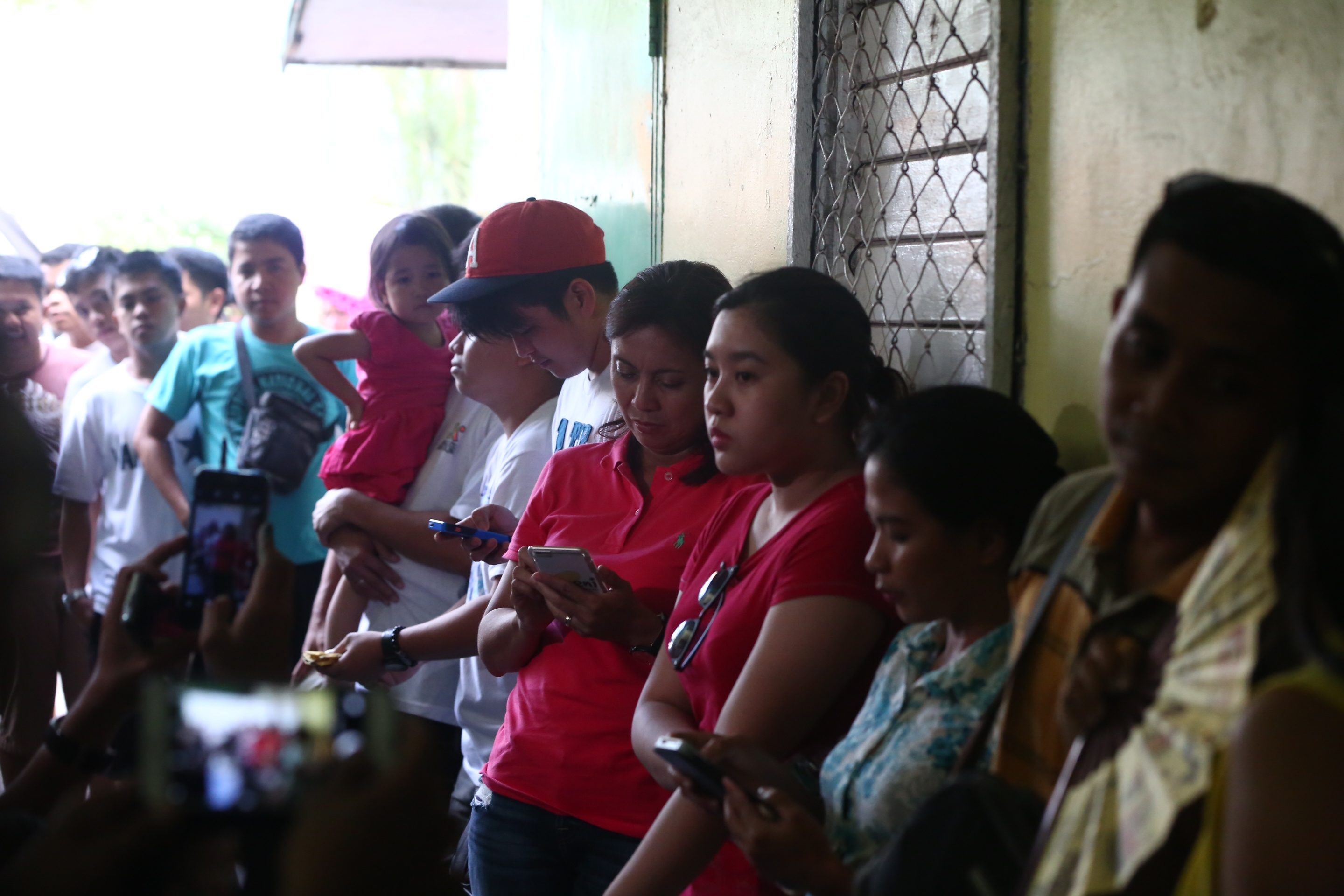
This was the Philippines’ 3rd automated elections, but the vote-counting machines still experienced glitches – reports from citizen journalists, Rappler volunteers, and correspondents filled our round-the-clock live blog at the time. A few days before the election, we ran a list of what voters should watch out for to prevent cheating with the VCMs. You can bookmark this for the next polls.
Even vice presidential candidate Leni Robredo wasn’t spared the hassle. She arrived at around 9:15 am at her precinct in Tabuco Central School in Naga City, where the machine malfunctioned. She was able to vote only after a replacement machine was delivered at 10:30 am.
Vote buying, in yellow
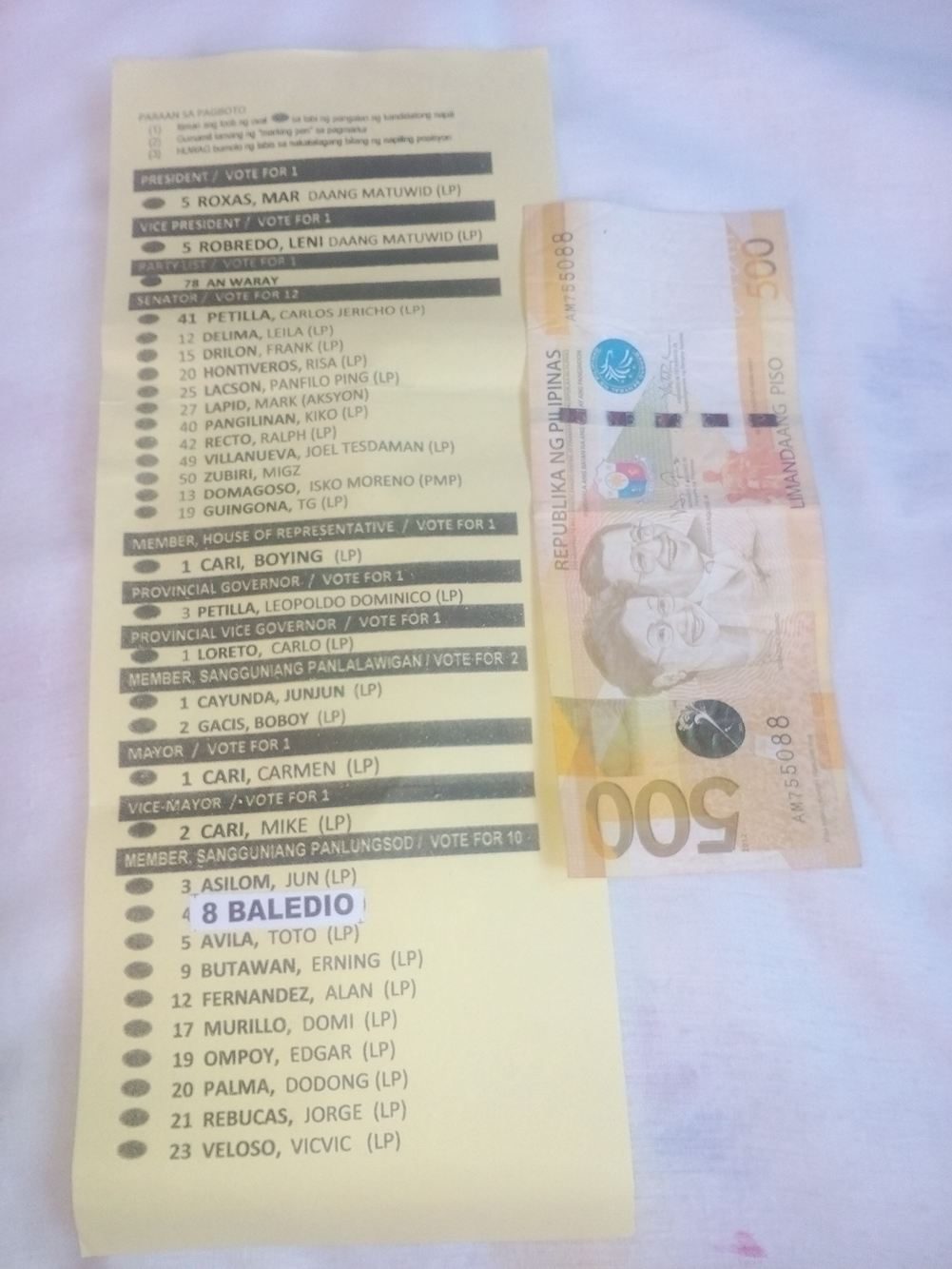
Reports of vote buying and intimidation were plotted in our #PHVoteWatch map, which reflected real-time reports from citizens. Whatever ways operators and candidates employed to get votes for a price, we warned about them ahead of time, and documented them where we had partners and volunteers.
As precincts closed, the United Nationalist Alliance, Binay’s party, called a press conference to reveal reports of vote buying and intimidation allegedly committed by party mates and allies of Liberal Party’s Roxas. As early as February, a few days after the start of the campaign period for national posts, UNA had accused the LP of using government funds to buy the support of local officials. The Duterte camp made the same accusation against the administration bet – that Roxas and LP are using the bottoms-up-budgeting program to bribe local officials and leaders.
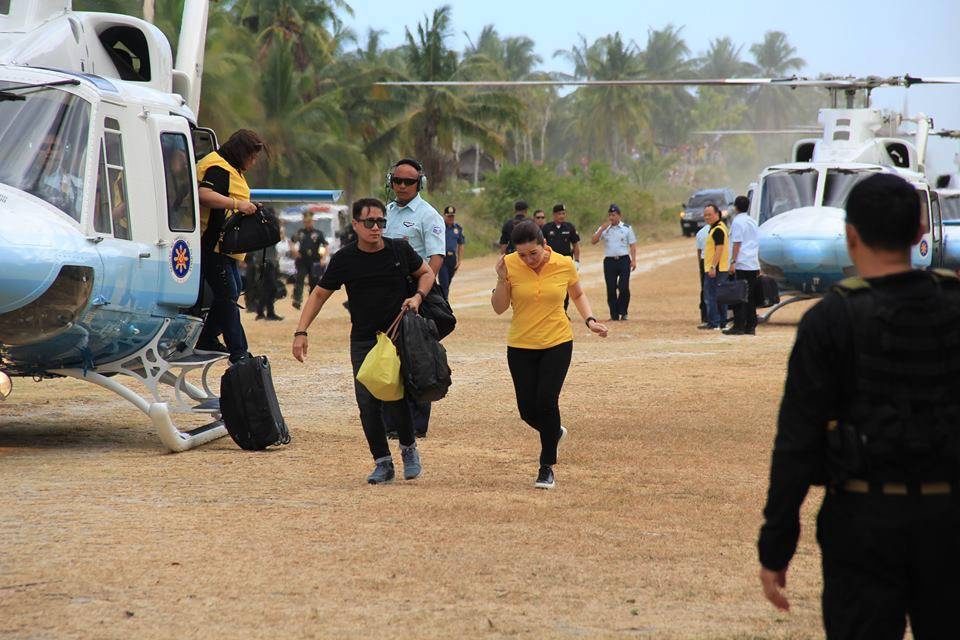
We ran an explainer, however, in April that year, explaining why it would be different to pin down Roxas – or any candidate, for that matter – on charges of vote buying. The proofs needed in a criminal case would be difficult to put together. Critics had a better chance of running after presidential sister Kris Aquino, for using a government chopper to go to Roxas’s sortie, but none of them pursued the case.
Election violence: ‘Isolated incidents’

Starting midnight until mid-afternoon of May 9, the Armed Forces of the Philippines National Election Monitoring Center monitored 22 incidents of election-related violence, as gunmen attacked, stole vote-counting machines, and ambushed vehicles. These resulted in the death of 10 persons and injuries to 3. They include the 7 who died in an ambush in Rosario town, Cavite, hours befoer the precincts opened.
Still, authorities called them “isolated incidents,” and still considered the elections peaceful overall.
Voters get promos, discounts

This time, offering rewards to voters isn’t vote buying but patriotism. A number of convenience stores, restaurants, food franchises, and even a theme park encouraged registered voters to actually go to the precincts by offering discounts of anywhere from 10% to 50% to those who had indelible ink on their right forefinger – the symbol of somebody who has cast his vote.
First transmission of votes
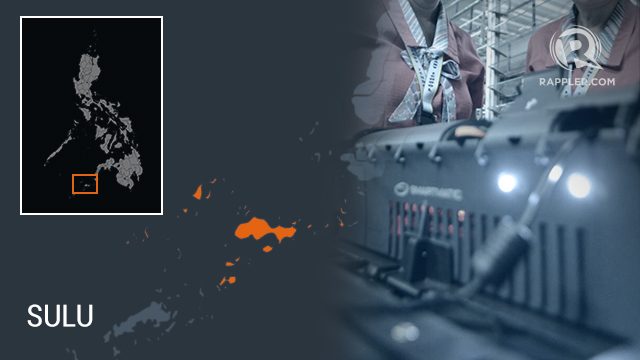
A minute – yes, just one minute – after most precincts closed nationwide, a precinct in a school in Indanan, Sulu, was the first to transmit its results to the Transparency Server of the Comelec in Manila. At 5:01 pm, the precinct at Kajatian Elementary School beat the 92,508 other precincts across the country to reporting its results. Seconds later, a school in Siocon, Zamboanga del Norte, followed.
The first batch of results reflected in the TP came from 100 precincts, representing less than 1% of precincts nationwide. It was the fastest transmission experienced by the Comelec since 2010. As of 8 pm – 3 hours after most polls closed – 60% of the precincts had transmitted their votes, compared to 23% in 2013, and 17% in 2010.
Duterte pulls away, Robredo dislodges Marcos
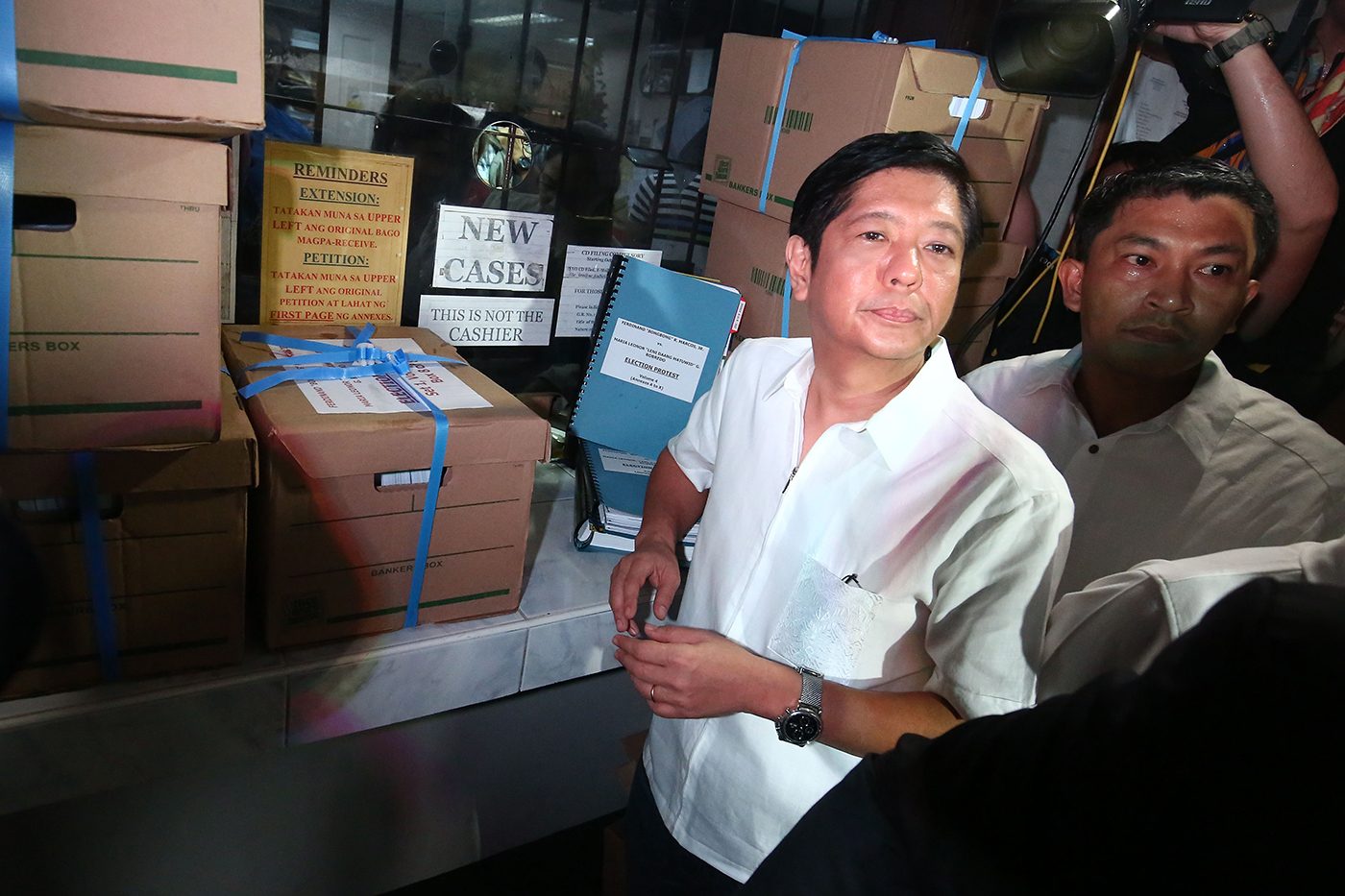
Past 7 pm on election day, with 87% of the precincts having transmitted their results, Duterte had captured more than 39% of the votes for president. By 3:08 am the following day, his lead was already insurmountable – he had 14,680,126 million votes or 36.6% of transmitted votes. By Wednesday afternoon, with reports from 95.55% of precincts already in, Duterte was the clear winner with 15,858,343 votes.
While Ferdinand Marcos Jr showed an early lead, Leni Robredo caught up, making them neck and neck in the first hours of canvassing. In the early hours of May 10, Robredo pulled away, prompting the Marcos camp to accuse her of dagdag-bawas (vote padding and shaving). He has since filed an electoral protest; the Supreme Court, sitting as the Presidential Electoral Tribunal, is about to hear the case.
Grace Poe first to concede
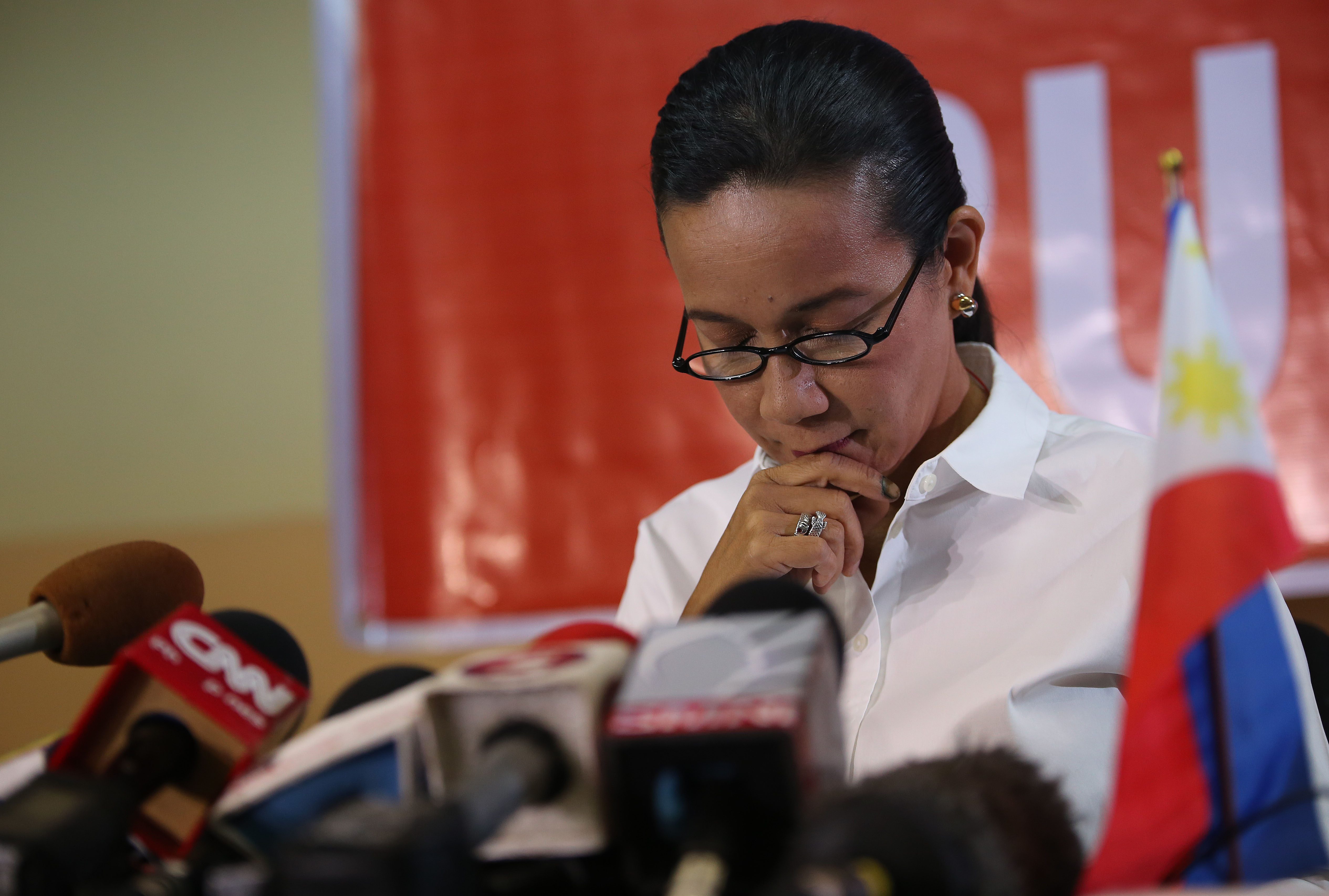
A little past 11 pm on election day, Grace Poe conceded the presidential race to Duterte, announcing in a press conference that she had called the mayor earlier in the evening to congratulate him. Around that time, Duterte had captured 38% of the votes, while Poe, initially the 2nd placer, dropped to 3rd, but just slighlty below administration candidate Roxas.
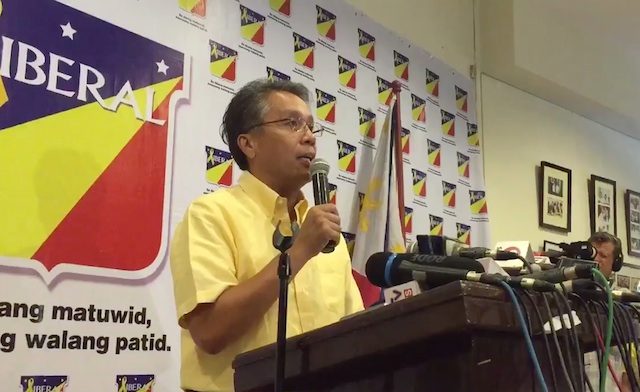
The following day, at 1:08 pm, it was Roxas’ turn to announce his concession, wishing success for Duterte, with whom he had a vicious word war in the home stretch of the campaign.
Binay, who was 4th in the race, said he would not concede yet, and would wait for the count to be completed. He finally congratulated Duterte through a late afternoon phone call – at 5:40 pm – on Thursday. This was not announced by Binay himself, however, but only confirmed by his spokesman after reporters sought his camp.
In early June, outgoing President Benigno Aquino III, conceded in an interview with Rappler that Duterte simply had a “very masterful way of campaigning” that bested the others.
Official canvass done, but Duterte skips proclamation

Congress’ official canvass of the votes was completed at past 7 pm on May 27, a little over two weeks after election day. Duterte’s camp finally acknowledged their victory as official – the candidate had refused to celebrate “until the last vote is counted” – when the final tally showed him with 16,601,997 votes, or 6.6 million votes more than what 2nd placer Roxas garnered.
Robredo officially won with 14,418,817 votes against Senator Ferdinand Marcos Jr’s 14,155,344 votes. She received the good news in Naga City, at the tomb of her late husband. It was the birthday of former Local Government Secretary Jesse Robredo.
They were proclaimed on May 30, exactly a month before they would take their oath of office. Robredo came, with her 3 daughters accompanying her, while Duterte made good his promise to skip the “corny” ceremony.
And the highest campaign spenders were…

…The two women who sought the two top posts. Senator Grace Poe spent the biggest amount among presidential candidates, reporting P510,845,262.56 in expenditures. She also received the highest amount of contributions at P511,950,000.
Among the vice presidential candidates, Robredo spent the most, at P418,664,130.60. She received the most contributions as well, at P423,163,737.34.
Duterte, Aquino call for healing

As early as the evening of election day, when his lead was becoming clear, Duterte called for reconciliation with his rivals. In a press conference at the Royal Mandaya Hotel in Davao City, he said:
“I would like to address myself to my opponents. These past few days have been quite virulent for all of us – the black propaganda and false accusations. Let us begin the healing now. Let’s begin to forget and start healing. I would like to reach the hands of my opponents. Let us be friends.”
It was, after all, the message that Aquino (yes, he was still president) delivered on the eve of the elections. In Filipino, he said:
“Let us show the whole world that regardless of our deep emotions and conviction regarding our candidate, we can hold elections that are peaceful, orderly, and truly mirror the spirit of democracy…. Let me stress: In a democracy, everyone can decide. In the end, after the elections, hopefully the bickering will end. Let us respect and understand any decision borne out of the collective voice of the majority.”
Rappler columnist’s fearless predictions
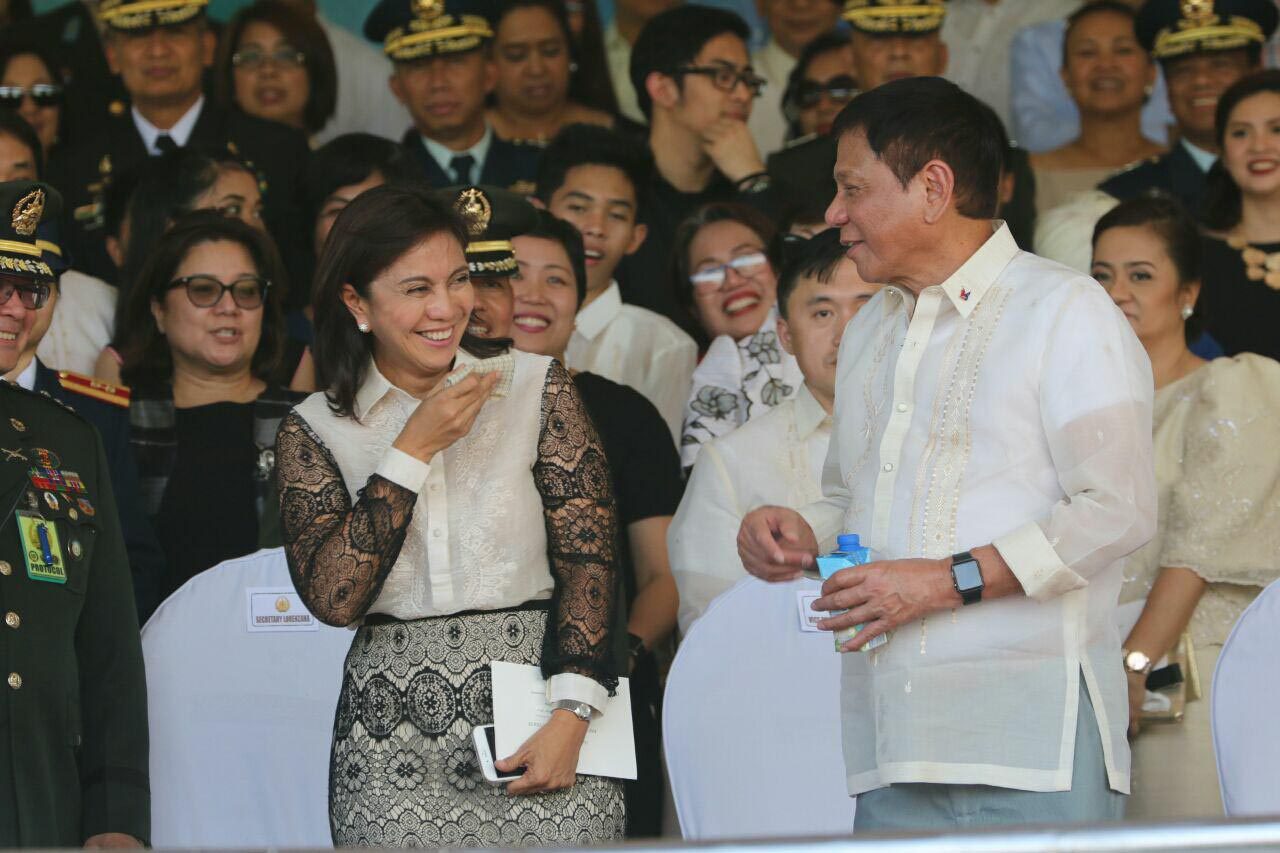
For Rappler columnist Dr Sylvia Estrada Claudio, however, it was clear even before the precincts closed that “the hatred and vitriol will remain” even after Duterte wins the election. The viciousness of online attacks made by his supporters against Duterte critics during the campaign showed it was the new norm, she said. She also predicted that Duterte’s promise of eliminating drugs and crime in 3 to 6 months would fail – and that, nevertheless, he wouldn’t make good his word to step down if that happens.
We know what has happened in this roller coaster ride of a year. – Rappler.com
Add a comment
How does this make you feel?
There are no comments yet. Add your comment to start the conversation.